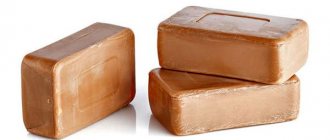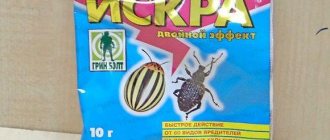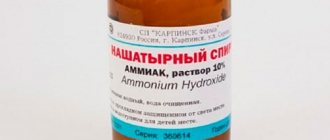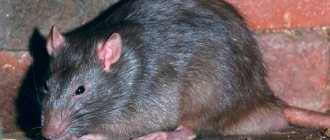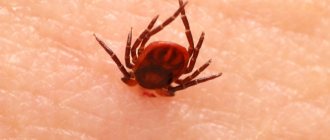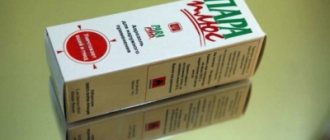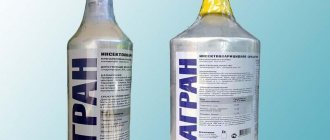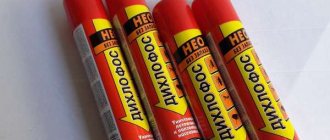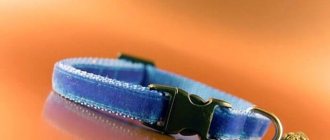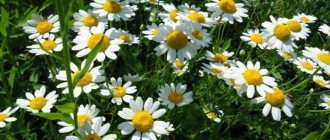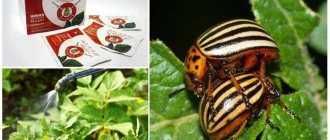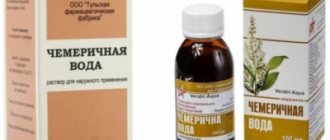What is an aphid?
This is a small sucking insect up to 22 mm in size. They come in green, red or black. Leaf and shoot aphids are always found in colonies, which is their main danger to plants. A few tiny creatures will not be able to cause significant harm. But hundreds and thousands of aphids suck the juices from fresh shoots, drying and destroying them. In addition, with its secretions it covers the stomata of the leaf, preventing it from breathing. Gardeners often use a soap solution against aphids, noting that this is a safe and effective way to control the pest.
Destruction of aphids at home
For effective control, there is a large arsenal of chemicals and many traditional methods of controlling aphids. Modern insecticides have a wide spectrum of action and kill adults, eggs and some other harmful insects. The method of their application is identical and consists of spraying the plants. The best pesticides are:
- "Aktara"
- "Tanrek"
- "Spark"
- "Fitovrem"
Physical measures against aphids should be used in conjunction with chemical ones, otherwise they will have to be repeated several times. Mechanical control methods in the form of poisoned baits and various traps are ineffective due to the feeding method and food supply of these insects. However, you can defeat them with:
- a powerful jet of water that will wash away pests from plants;
- hands, removing individuals from bushes and trees.
Biological methods boil down to attracting birds and other insects that eat aphids (for example, ladybugs) to the site, as well as the correct planting of plants that have repellent properties. So, it is better to plant tomatoes and beans surrounded by onions and garlic. In addition, you can use organic insecticides isolated from herbs and flowers - Actofit, Akarin.
How does soap work?
Laundry soap has been used by gardeners in our country for a very long time in pest control. This remedy was used back when chemical insecticides were just emerging. With the help of soap, you can not only drive aphids and ants out of your area, but also defeat some fungal plant diseases.
The pest-killing properties of laundry soap are based on the rich content of natural fatty acids in its composition. Scientists have already found out that one of the main components of soap, caproic acid, can kill up to 90% of aphids even in a very weakly concentrated solution.
It will also be useful to learn about what folk methods exist to combat aphids on currants.
Laundry soap is most often used together with other substances in the fight against aphids. Soap in solution is responsible for the insect sticking to the leaf, and substances with a more aggressive toxic composition already complete the procedure, completely destroying the pest.
However, the laundry soap itself has a complex composition, which in the proper concentration can easily kill aphids.
Therefore, highly concentrated solutions of laundry soap can also be used as a separate spraying agent. It will also be useful to learn about how to use tar soap and soda against aphids.
Note that cosmetic soap is not suitable for combating aphids - it is necessary to use laundry soap or tar soap. The fact is that these types of soap have the highest disinfectant and antibacterial properties.
In addition, today manufacturers have developed the so-called green soap - a special soap-based insecticide that can, among other things, protect an area from aphids and ants.
Standard
To prepare the correct solution of laundry soap, which is guaranteed to be able to destroy aphids, you must follow simple but mandatory requirements. Let's take a closer look at them.
First of all, to prepare the solution, you need to grate 300 grams of soap - 75% - on a coarse grater. Pour the resulting soap shavings into a bucket and add two liters of warm water to dissolve the soap. Stir. When you have a concentrated composition with completely dissolved soap, dilute it with 8 liters of cold water. Mix everything thoroughly too. After the solution settles, it should become transparent, without any solid fractions or thick sediment. But this information will help you understand what aphids look like on cucumbers in a greenhouse, and what soap solution is needed in this case.
From liquid soap
In addition to bar soap, you can also use its liquid analogue. In the same way, liquid laundry soap is dissolved in water, but in the following proportion: for a 10-liter bucket you need to take 125 ml of product.
Which soap to choose
What kind of soap can kill aphids? A block of aromatic toiletry is of little use. This soap contains a lot of additives, dyes and chemicals, which cannot be called beneficial for plants.
Laundry soap
And a pleasant smell may not repel insects, but, on the contrary, attract them. It is not recommended to use liquid soap. Dishwashing liquid is also not suitable. What to choose?
Degtyarnoe
By using tar soap against aphids, you can also get rid of a number of other pests. Special ingredients and a specific aroma are good weapons against caterpillars, spider mites and mealybugs. When working with the solution, you don’t have to worry that it will harm people and animals.
Natural tar soap
A solution of soap for aphids is prepared simply. Grate a piece of tar detergent, calculating the volume as follows: 100-250 grams of soap are required per bucket of water. These shavings are then completely dissolved in hot water. When the solution has cooled, it is ready for use.
Solutions containing additives are more effective. This can be kerosene. Tar and soap solution with kerosene is a universal insecticide not only against aphids, but also against a number of other pests.
For preparation take:
- water – 6 parts;
- tar soap - two parts;
- kerosene - one part.
The ingredients are mixed. The solution is completely ready for use.
Economic
A solution of laundry soap against aphids is an extremely easy-to-prepare, affordable, effective and safe remedy for garden aphids for crops, people and pets. It's a matter of unique composition. More than half of laundry soap consists of fatty acids and contains a lot of alkali.
Laundry soap
According to GOST, it is divided into three grades (categories):
- the first category includes a product containing from 70 5 fatty acids;
- The second category includes soap containing at least 69% fatty acids;
- category three includes soap, where fatty acids range from 64%.
Regardless of category, all laundry soap helps against aphids. The simplest recipe for a homemade insecticide is to dissolve a bar of soap in a bucket of water. Preliminary rubbing with a grater and the use of heated liquid greatly facilitate the preparation of the solution.
To make laundry soap against aphids “work” even more effectively, you can “enrich” the spraying agent (per bucket of the “classic solution”):
- ammonia (2 tablespoons);
- a handful of wood ash;
- decoction of onion peels: for a handful of “waste” - a liter of water, leave for a day;
- ½ cup soda ash.
The best results are obtained by the laundry soap whose bar is darker.
How to use correctly
How is a soap solution used against aphids?
The cooled liquid is sprayed onto the affected plants using:
- brushes;
- broom;
- spray bottle.
When the surface to be treated is small, it is convenient to simply apply the solution to the leaves and trunks with a paint brush or sponge. A soap solution against aphids on home flowers can be applied liberally to the leaves without missing a single one.
To consolidate the result, it is recommended to dust the plants with ash - aphids really don’t like this.
Processing must be done in dry weather, having previously learned the forecast. It shouldn’t rain for at least a couple of days, otherwise your efforts will be in vain: the water will simply wash away the soap film. The best time of day to fight aphids with soap is in the evening, when the beneficial insects' flight period stops.
The optimal treatment scheme is at intervals of 2-3 days (depending on the weather). Approximately 90% of insects die from soapy water. The reduction in aphid numbers is noticeable almost immediately.
Laundry soap solution
The process of preparing an effective drug involves dissolving soap in liquid. Laundry soap against aphids is a safe product that does not affect the development of garden and vegetable crops and does not worsen human well-being. You can work with it without using rubber gloves.
On a note!
Household soap should be grated on a coarse grater if it is in briquettes. You will need 300 g. Pour the shavings into a 10 liter bucket, add 2 liters of warm water. Stir the solution well until the laundry soap is completely dissolved. Add 8 liters of cold liquid and mix thoroughly. Liquid soap against aphids is also suitable. Then 300 ml of the product is simply diluted in 10 liters of cold water.
Laundry and tar soap for aphids
Recipes
Let's look at the most effective recipes for spray solutions with soap.
Ash-soapy
It is very effective to use wood ash along with laundry soap for pest control. To prepare the spray, sift the ash through a sieve to separate large fractions from the fine dispersion - they are not needed for the solution. A total of sifted finished ash powder will require 300 grams.
Place a metal bucket with 10 liters of water on the stove and pour ash into it. Bring the mixture to a boil, and after boiling, cook for another half hour. Then you need to cool the resulting brew (but not completely), and dissolve grated laundry soap in it in an amount of 40 grams.
This solution should not be used when plants are in flower. When ash gets on the delicate petals, they become unattractive, including to pollinating insects. It is better to treat flowering bushes and trees with clean soap foam.
Soap and soda composition
To prepare this product you need to take a tbsp. a spoonful of soda (heaped) and one-fourth of a standard piece of laundry soap (grated). Mix the substances, place in a metal ladle, and pour in a liter of boiling water.
Stir until smooth - this will be a concentrate. Then the resulting composition is diluted with a bucket of cold water and used for spraying plants.
Soap and tobacco solution
Aphids are known to dislike strong-smelling substances and plants. Tobacco is one of these plants. Adding tobacco to spray solutions is therefore very effective. To make the solution, you need to take 200 grams of dry tobacco (leaves or shag), grind it into dust, pour it into a bucket of water, and add a couple of pods of hot pepper for strength.
Oil solution
In this case, to prepare the damaging composition, use laundry soap and vegetable oil in equal parts. It is recommended to take a glass of oil and the same amount of soap shavings for a bucket of water.
All components should be mixed, beaten until the soap is completely dissolved, and then used to spray garden plants against aphids, as well as to nourish the soil. The oil helps the soap solution stay on the surface of the leaves for a longer period, as it protects it from fading in the sun and rolling off to the ground. As a result, processing efficiency increases.
With tomato tops
This remedy can also be used quite effectively to eliminate aphids in the garden. To prepare, you need to finely chop 4 kg of tomato tops (fresh) and place them in a metal bucket. Pour the plant material with ten liters of water and leave for 4-6 hours.
After infusion, the composition is boiled, bringing to a boil, and then for another half hour. Add 50 grams of grated soap to the resulting liquid, mix everything and filter.
Soda solution
Soap and baking soda work wonders against aphids. The effect is noticeable by the end of the day if the treatment was carried out early in the morning. Initially, the required amount of the drug is determined. Prepare a soap solution (1/4 or 1/2 of a bar of soap per bucket is enough), add soda at the rate of 1 tbsp. spoon per 1 liter of water. You will need 10 spoons per bucket. Mix thoroughly.
Baking soda causes irritation and damages the skin; soap prevents insects from escaping. The pests will die quickly within 24 hours.
Use of green soap
Green soap is a special product that is a thick mixture of brown or greenish color. It contains a large amount of potassium salts and fatty acids. The use of such a product can stop the development of pests, preventing them from feeding and reproducing. The main advantage of green soap is that it is absolutely harmless to the environment and is highly effective.
Most often, green soap is used for preventive purposes. It is not difficult to prepare a solution based on it.
You only need 40 grams of the product, a liter of boiling water and 2 liters of kerosene. All this is mixed to such an extent that the mixture resembles sour cream in thickness. Shake the solution before using it.
This remedy is used in early spring before the formation of buds, as well as before winter. For prevention, plants can be sprayed with a solution with a concentration of 2-4% to protect them from spider mites and aphids.
This solution is suitable for small plants such as shrubs; to treat trees, the solution must be diluted with water, increasing its amount by 2 times . If you plan to spray plants at the peak of the season, when the foliage on the plants is still green, then this soap needs to be diluted with water up to 12 times.
Please note that plants need to be sprayed on cloudy days or in the evening when the sun goes down. Otherwise, there is a risk of harming the plant, as it may get sunburn.
In addition, when processing, it is necessary to affect only the bush, without affecting its root system.
Please note that green soap is an insecticide, although not as strong as many chemical products. It must be used strictly according to the instructions and in compliance with safety precautions, while using a protective mask and rubber gloves. It can only be used to combat insects; it is not suitable for washing dishes or washing clothes.
Additional Recipes
In addition to the above methods, there are other folk recipes that also help destroy insects.
With wood ash
Wood ash can also be used with soap, which adds effectiveness in the fight against aphids. You can make a solution with these substances by following these steps:
- The ash is sifted through a sieve. This separates large elements that are not needed in the solution. In total you need to prepare 300 grams.
- Fill a metal container with 10 liters of water, pour ash into it and place it on the stove.
- Bring the solution to a boil, then cook for 30 minutes.
- Cool the resulting liquid and stir 40 grams of grated soap into it.
Important! Ash and soap against aphids are not used when plants form flowers. Getting the ash solution on the buds will repel pollinating insects. Those plants that are in the period of peduncle formation should be sprayed with soap foam.
With tobacco
The high effectiveness of tobacco in the fight against harmful insects is explained by the fact that it has a strong aroma. Most parasites cannot tolerate strong odors, and therefore they are often used to increase the effectiveness of solutions.
So, to prepare a mixture of tobacco, you will need 200 grams of the main component in dry form. Both leaves and shag are suitable for the solution.
The tobacco is ground into dust, after which it is poured into a bucket of water, 30-40 grams of laundry soap shavings are added and, for greater effectiveness, 1-2 pods of hot pepper.
With baking soda
To prepare this remedy, you must do the following:
- Take a tablespoon of soda, preferably with a heap, and a quarter of solid soap, which you need to grate on a coarse grater.
- Mix the ingredients and place them in a metal container. Pour a liter of boiling water.
- Stir until a homogeneous mass is obtained.
- Dilute the solution with cold water. After this, you can start using the product.
With potato or tomato tops
This recipe is also popular among summer residents. To prepare the solution, you will need 4 kilograms of tomato or potato tops, which must be finely chopped and poured into a metal bowl. The greens are poured with 10 liters of water, after which they are infused for about 6 hours. When the infusion is complete, the solution is placed on the stove and brought to a boil, then 50 grams of grated laundry soap are added to the mixture, all this is mixed, strained and used for spraying.
Spicy
To prepare a spicy solution with a strong aroma, you will need cinnamon. Many parasites are afraid of its smell, and therefore it is the best component for preparing mixtures against them. So, you will need a teaspoon of cinnamon, grated soap and a liter of water. All this is mixed and then used to spray plants.
Pine extract
This component is sold in salt or powder form. Many gardeners use it, as it is a proven and safe substance for plants. You can prepare the solution by following the rules:
- Dilute 4 tablespoons of concentrate in a bucket of water.
- Add grated soap to the container and stir the mixture.
- Let the liquid sit for 30-40 minutes. After this, you can start spraying.
Attention! You can spray plants with a soap-based solution only after pre-cooling the substance.
Tobacco
Aphids and many other pests do not tolerate strong-smelling substances. That is why adding tobacco to the aphid mixture will bring additional benefits - it will rid the bushes of caterpillars and mites. To properly make a concentrate, you must perform the following steps:
- Take 200 grams of dry tobacco. Grind the ingredient into a fine substance and add to a bucket of previously prepared boiled water.
- Pour the grated soap into the same container and stir the substance.
- To enhance the effect, you can add hot pepper to the solution.
Herbal infusions with a pungent odor
Parasites do not like fungicides contained in needles. Pine needles are poured with hot water and left for 10 hours. The solution for spraying against aphids is ready.
The best folk remedies for aphids:
- Crushed sorrel roots are infused in cold water for 2 days.
- The smell of mustard repels insects. Dilute 100 g of dry mustard in 5 liters of water and add soap. Dry powder is sprinkled on anthills and approaches to sweet spots.
- Garlic infusion is often used and is a simple home remedy for aphids. They use everything: cloves, tops and arrows. The plant is crushed, water is added and infused for 1-2 days. Then vegetable oil or soap is added and the plants are sprayed. You can use it to treat the ground against aphids by simply watering the plant with the solution.
- An infusion of a mixture of onion, garlic and hot pepper works well. Treatment of plants against aphids is carried out twice.
- The citrus aroma is unpleasant to the pest. This is a great option for indoor flowers. To prepare the solution, pour 40 g of fresh zest into a liter of boiling water. Leave for 3-4 days.
- Tomato and potato tops. Grind 4 kg of raw materials, add 10 liters of water, leave under the lid for 6 hours. Place on the fire and cook for half an hour after boiling. Before use, filter and add 50 g of any soap.
Flower infusions
100 g of celandine tops with flowers are poured with cold water and boiled over low heat for half an hour. Irrigate or wipe the plants immediately after cooling. The same remedy is prepared from marigolds. A mixture of flowers will work even more effectively.
Onion infusion
Onion infusion helps destroy aphids. A handful of dry onion peels is poured into a glass of warm water and allowed to brew for several hours. To get rid of green aphids, four such treatments are enough.
You can mix several components: onion peels, garlic and dry mustard. Spray twice a week.
Essential oils
If there is a small infestation of pests, a mixture of essential oils will help get rid of them. In one glass of water, stir 5 drops of strong-smelling concentrates: rosemary, cloves, mint. Wipe the foliage with this solution every day for a week.
Traditional methods of controlling aphids help quickly get rid of pests.
Preparations for aphids
During the growing season, up to 20 generations of aphids reproduce. To combat pests that have severely affected plants, there are several types of professional products.
ATTENTION! Proper use of aphids on plants and compliance with the dosage is the key to quality results and a good harvest!
Garden green soap
Garden green soap is a preparation for aphids, which consists of animal fats, potassium salts, fatty acids, natural vegetable oils and water. Shows excellent results in the fight against diseases and pests in plants, including green aphids.
An invisible thin film is formed on the treated plants, which protects against parasites. Using it as an independent remedy, it is simply dissolved in water or added to various infusions and chemicals. Green soap is only used on plants. Does not pose any danger to the environment. Use only for treating the above-ground parts of plants.
ATTENTION! When treating indoor plants, cover the earthen ball with film.
Adhesive tapes
The easiest way to control aphids is to get rid of the ants that spread them. You can buy a ready-made trap or make it yourself. It looks like a tape, 20 cm wide, with a special non-drying glue applied to it.
ATTENTION! You can make this glue yourself. Thoroughly mix and boil 10 parts of pine resin, 1/2 part rosin and 1.5 parts Vaseline. You can also apply resin or tar to the prepared tape.
It is better to secure the traps before the buds open, so that pests overwintering in the ground do not have time to get into the crown. They are placed 20-60 cm from the ground, encircling the tree trunk. The catch is checked every day, large trophies are destroyed. Renew the adhesive layer at least once a month. As they fill up, the belts are changed.
Hydrogen peroxide
You can poison aphids using hydrogen peroxide. For 10 liters of water, dilute 2 tbsp. l. hydrogen peroxide and vodka. Such a solution will not only help treat aphids, but will protect against parasites later and give the plant strength.
Iodine
Iodine will help remove aphids. To combat parasites and feed plants, prepare a solution of 9 liters of water, 1 liter of whey or low-fat milk and 10 drops of iodine.
The second recipe for spraying aphids: add a teaspoon of iodine and 2 tbsp to 10 liters of water. l. soda, for durability add grated laundry soap.
Vinegar
Many people ask the question: “Does a vinegar solution help against aphids?” Vinegar against aphids has many fans among gardeners. Some argue that fighting aphids with vinegar, using it only 2-3 times, will help you forget about the existence of aphids in your garden or garden.
To prepare the solution you only need 1 tbsp. l. vinegar and 1 liter of water. When using vinegar essence, take 1 tbsp. l. for 10 liters of water. Vinegar against aphids is one of the best means of control. Spraying with vinegar against aphids should be carried out systematically. More on mustard and the fight against aphids with its help.
Mustard
Ants are often the cause of aphids. To get rid of them, you can use a product that they especially do not like - mustard against aphids.
Sprinkle dry store-bought mustard in the areas where ants are most concentrated and, perhaps, the next day they will disappear. Thus, mustard against aphids is an excellent means of pest control.
This method can also be used for prevention, unless, of course, you have pets wandering around the yard.
What plants is it suitable for?
A soap solution against aphids is universal and helps get rid of pests on any plants. If regular soap is not available, you can get rid of aphids by applying tar soap to the plants.
Fruit trees
Aphids suck sap from tree leaves, spoil shoots and leave behind a substance that attracts other harmful insects. As a result, the foliage of fruit trees turns yellow and then dies. As a result, the yield level decreases. The plant becomes vulnerable to diseases and fungi.
To remove aphids, you need to use soap in solid or liquid form. First you need to grate the soap on a coarse grater. After this, you need to dilute 1 liter of warmed water. The required amount of soap is added to it.
This product covers the leaves with a film that makes it difficult for insects to move. In addition, laundry soap reduces the risk of plant disease.
Rose
Usually in the spring, aphids appear on rose bushes. It damages the stems and peduncle, sucking the juice from it. As a result, the rose dries out, its leaves curl and are affected by fungus. The bush dies.
To prevent this, you need to use soap. For a liter of warm water, take 50 grams of solid and 2 teaspoons of liquid. Every evening you need to spray the stems and foliage of the rose, after two weeks the pest will disappear from the flower.
cucumbers
Aphids on cucumbers cause their death in just a couple of days. Plant leaves turn yellow and fall off, and ovaries do not form. Therefore, you need to use means that will prevent this.
A mixture of ash and soap helps insects stick to the stem and leaves. To create a solution, you need to mix 200 grams of ash and 50 grams of soap per 10 liters of warm water. Stir the mixture and sprinkle it on the cucumber shoots.
Currant
The harmful insect damages the bush, reducing productivity and spoiling the inflorescences. A soap solution will help you cope with aphids on currants. This component interferes with the feeding of aphids, making it difficult for them to move.
You can use soap in both liquid and solid form. To protect the currant bush, you need to dilute 300 grams of the product in 10 liters of boiled water. After this, you need to spray the plant several times a day.
Pepper
The insect appears on peppers due to the juicy fruits of the plant. After the aphids appear, the pepper leaves will begin to wither and deteriorate. As a result, the plant may not produce a harvest at all.
A soap solution will help exterminate the harmful insect. You need to dilute 5 grams of product per 1 liter of water. After this, the solution should be infused for 5 hours. When the deadline is up, you can spray the plant bush. In order for aphids to completely disappear from peppers, you need to spray the bushes 3-4 times.
Cabbage
After the appearance of aphids on the cabbage, various harmful microorganisms begin to multiply - rot, fungi, mold. Soap will not only drive away insects, but also restore leaves. You need to dilute 100 grams of the product in 1 liter of water at room temperature. After thorough mixing, you need to add another 9 liters of water, but this time cold. Next, the head of cabbage is sprayed.
Effective ways to treat cabbage against aphids at home
Kalina
Adult aphids suck the juices from the plant, causing the leaves to curl and become spotted. Insects damage flowers and young shoots. You need to use laundry soap in combination with wood ash to finally get rid of pests.
200 grams of ash and 50 grams of grated soap are added to the water. Everything is mixed and infused for an hour. You need to spray the viburnum with the prepared solution every day.
Aphids on viburnum: other pest control measures
Dill
Aphids appear on the plant in June. As a result, the greenery does not grow, turns yellow, and mucus appears on it. Soap combined with garlic will help get rid of pests. For a liter of water you need to add 1 cup of crushed cloves and 200 grams of soap. It is necessary to mix the mixture and leave for 24 hours in a closed container.
Raspberries
If aphids appear on a raspberry, the plant will stop growing, its inflorescences will fall off, and the leaves will turn yellow. To prevent this from happening, you need to use a soap mixture. It is necessary to grate the product and mix with water until a soap mass is formed. You can spray the bush with the resulting solution.
Recommendations for using natural aphid repellents
There are a lot of effective methods of combating aphids. The main rule for using any means, both chemical and natural, is to use them wisely. There are several nuances to using natural pest repellents:
- Few traditional methods give instant results. You will have to carry out from three to ten procedures with a frequency of 1-2 times a week. Recipes must be alternated.
- The treatment is carried out only in the evening and special attention is paid to the lower surface of the leaf plates. At the very beginning of the growing season, it is better to use chemicals, and at a later date, before and after harvesting, use softer and harmless natural products.
- Folk remedies are appropriate only on small personal plots. They are not used in agricultural production conditions.
If after using your own preparations the insects do not disappear or the situation worsens, then it is better not to delay and use insecticides. On store shelves you can find biological products that have a milder effect and do not harm fruit and vegetable crops, but cause great damage to aphids and other harmful insects.
If after one treatment the aphids have not disappeared from the leaves, the procedure should be repeated at least one more time.
When using traditional methods, you can get rid of not only pests, but also various fungi and rot. They have an antiseptic effect and at the same time serve as additional nutrition. But you need to use such drugs with caution, wear a mask and gloves, and wash your hands and equipment thoroughly after handling. To prevent aphids from returning, it is necessary to simultaneously treat all adjacent areas.
Author of the article: Kamenkov Igor Dmitrievich
- Related Posts
- How often do you need to water and what to feed tomatoes to get a good harvest?
- Valerian will help against cabbage pests: tested by myself
- How to grow proper eggplant seedlings at home
« Previous entry
Adviсe
Several recommendations from distinguished gardeners regarding the destruction of aphids and ants using laundry soap.
If the aphid has not seriously affected the plant, then instead of spraying it is recommended to wipe the branches and leaves with the resulting soap solution. It is clear that only low bushes can be wiped, and trees will have to be sprayed in any case.
Do not spray with soap solutions during rain or on the eve of it. Drops of water will wash away the entire solution from the leaves, and it will not have time to have the desired effect on pests. In hot weather, the procedure cannot be carried out during the day under the sun. The sun's rays hitting drops of moisture can leave severe burns on the foliage. Subsequently, the tree may even get sick after such treatment.
It is also worth learning more about the use of celandine against aphids on trees.
When carrying out the procedure, it is necessary to pay attention to the back side of the leaves. The fact is that it is in such secluded places that aphids prefer to live. Without processing the entire part of the sheet, there will be no result from the procedure.
So, we looked at the features of using laundry soap to kill aphids and ants on the site. As you can see, this simple home remedy can very well become an assistant in the difficult fight against pests. Use soap in the early stages of aphid infestation, as once there are more insects, the product will no longer be as effective.
Harm to aphids
This insect causes significant damage to green spaces in the garden and vegetable garden. The aphid bites through tender young leaves and shoots with its proboscis, drinking nutritious juices from them. As a result of such bites, the plant withers, weakens, withers, and dries out.
Note that this insect is in symbiosis with ants that feed on its honeydew (honeydew). That is why, before fighting aphids in the spring, it is first necessary to destroy all anthills on the site, otherwise these nimble workers will breed aphids again.
The damage caused by aphids is extensive: as already mentioned, this includes drying out of leaves and shoots, depletion of plants in general, and aphids also carry disease spores and lead to the appearance of sooty fungus on the leaves. The honeydew that the pest produces impedes the processes of photosynthesis in the leaves, which also harms the plants.
The following symptoms may indicate that aphids have settled in your area: deformation of young shoots of plants occurs, as well as the apical part of trees and bushes. If aphids infect the plants at the time of flowering, the buds begin to fall to the ground, first curling.
On leaves and branches, as well as under trees/bushes, you can notice a sticky substance - the so-called honeydew. It is this substance that is the reason for the strong “friendship” between aphids and ants. And if plants are attacked by gall aphids (for example, currants), characteristic unsightly swellings appear on the leaves - galls.
